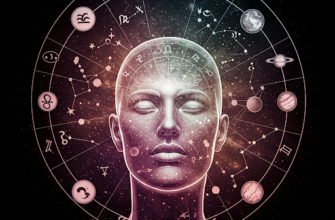The Fascination with Astrological Cycles
Astrology, with its rich tapestry of zodiac signs and celestial cycles, has captivated human imagination for centuries. While skeptics often dismiss astrology as mere superstition, many find profound meaning and guidance in the patterns of the stars. One key aspect of astrology is its focus on cycles, which are believed to influence various facets of our lives. Let’s delve into the impact of these astrological cycles and explore how they might shape our experiences and decisions.
The Zodiac Wheel: A Cosmic Calendar
At the heart of astrology lies the Zodiac wheel, a circle divided into twelve signs, each associated with a specific time of year and set of characteristics. This wheel operates on a cyclical basis, with the Sun moving through each sign approximately every month. These cycles are thought to influence everything from personal traits to broader life themes.
For instance, the Sun’s passage through Aries at the start of spring is often seen as a time for new beginnings and energetic pursuits. Conversely, when the Sun is in Pisces, we might experience a more introspective and dreamlike phase. Each sign carries its own flavor of influence, creating a dynamic interplay throughout the year. By understanding where we are in this cycle, individuals can align their actions with the natural rhythms of the cosmos.
Lunar Phases: Embracing Change
The Moon’s phases—new moon, waxing crescent, first quarter, waxing gibbous, full moon, waning gibbous, last quarter, and waning crescent—create a repeating cycle that impacts emotional and spiritual aspects of our lives. Astrologers often emphasize the Moon’s influence in areas like personal growth, manifestation, and emotional healing.
During the new moon, which symbolizes a time of new beginnings and fresh starts, many people set intentions and goals. As the Moon waxes, energy is typically directed towards growth and development. The full moon, on the other hand, is associated with culmination and realization, making it an ideal time for reflection and gratitude. Understanding these lunar phases can help individuals align their efforts with the natural ebb and flow of energy, potentially enhancing personal effectiveness and emotional well-being.
Planetary Transits: Navigating Personal Journeys
Astrological transits occur when planets move through different signs and make aspects to the positions of planets in a natal chart. These transits are believed to influence various life areas, including career, relationships, and personal development. The effects of these transits can vary widely depending on the individual’s chart and the nature of the transit.
For example, Saturn’s transit through a particular house in a natal chart might prompt a period of increased responsibility and structure, often seen as a time of hard work and discipline. Conversely, Jupiter’s transit is often associated with expansion, optimism, and opportunities. By tracking these planetary movements, individuals can gain insights into potential challenges and opportunities, allowing them to navigate their personal journeys with greater awareness.
Retrograde Cycles: Revisiting and Reflecting
Retrograde periods, particularly those of Mercury, Venus, and Mars, are often highlighted in astrological discussions. During a retrograde phase, a planet appears to move backward through the zodiac from our perspective on Earth. This phenomenon is commonly associated with delays, misunderstandings, and the need for reflection.
Mercury retrograde, for instance, is notorious for its impact on communication and technology. Astrologers often advise using this time to review and revise rather than initiate new projects. Venus retrograde, on the other hand, might bring about reassessment in areas related to relationships and values. Understanding these cycles can help individuals manage expectations and navigate challenges with greater ease.
Eclipse Seasons: Moments of Transformation
Eclipses, which occur during the new moon and full moon phases, are considered potent times of transformation and revelation. Solar eclipses often signal new beginnings or significant changes, while lunar eclipses are thought to bring endings and culminations. These events can be particularly impactful, triggering shifts in personal and collective life themes.
For example, a solar eclipse might prompt a person to make a major life decision or start a new venture, while a lunar eclipse could reveal hidden truths or bring about a natural conclusion to ongoing issues. Eclipses are seen as powerful markers of change, encouraging individuals to embrace transformation and growth.
By paying attention to these astrological cycles, individuals can gain a deeper understanding of their own rhythms and the broader cosmic influences shaping their lives. Whether or not one subscribes to the full spectrum of astrological beliefs, the cyclical nature of the cosmos offers a fascinating lens through which to view our personal journeys.








